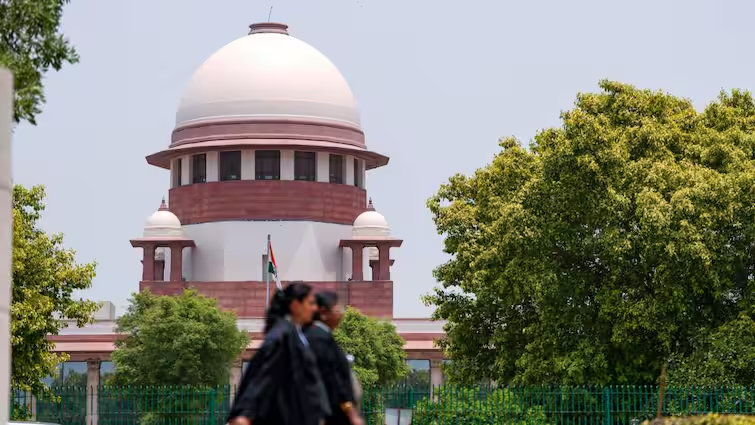Florida Woman Accused of Illegally Selling Human Bones on Facebook Marketplace
A woman from Florida has been arrested in connection with an investigation into the alleged online sale of human bones. Authorities revealed this week that the sale was taking place through Facebook Marketplace and was linked to a local business in Orange City.
The accused, 52-year-old Kymberlee Schopper, has been charged with offenses related to the unlawful trade of human remains. According to law enforcement, she is believed to have knowingly bought and sold human bones as part of her business operations.
Business Owner Charged After Police Probe Human Remains Sale
Kymberlee Schopper, who co-owns a business named Wicked Wonderland, was apprehended on April 11 in Orange City, Florida. She was later released from the Volusia County Jail after posting a $7,500 bond, which is roughly equivalent to ₹6.45 lakh in Indian currency.
The charges against Schopper stem from an ongoing criminal investigation that began late last year. Authorities suspect she engaged in the trafficking of human tissue—an act that is considered illegal under Florida law.
Tip-Off Sparks a Deep Dive Into Facebook Activity
The case began to unfold on December 21, 2023, when officers from the Orange City Police Department received a tip about suspicious listings on a Facebook page linked to a local business. An informant had reportedly come across photos suggesting that human bones were being sold on the social media platform.
Officers quickly traced the listings to Wicked Wonderland, a store situated on North Volusia Avenue. The investigation gained momentum as police reviewed the business’s website, where they discovered several questionable listings. These included fragments of human skulls, a clavicle, scapula, rib, vertebra, and parts of another skull.
Remains Sent for Forensic Examination
In response to their findings, authorities confiscated the bones and forwarded them to the medical examiner’s office for further analysis. Forensic experts reviewed the items and provided significant insights into their possible origins.
Initial results revealed that some of the bones were likely of archaeological value. One skull fragment was estimated to be over 100 years old, while another appeared to date back more than 500 years. This revelation raised further questions about how the remains had been acquired and whether international trafficking might have been involved.
Store Owner Admits to Selling Bones for Years
Law enforcement officers visited the store shortly after identifying the business as the source of the Facebook Marketplace listings. During this visit, they interviewed a woman who identified herself as one of the business’s owners.
She admitted that Wicked Wonderland had been selling human bones “for years” and insisted she did not know such transactions were illegal in Florida. According to the arrest affidavit obtained by FOX 35 Orlando, the woman acknowledged that the bones were authentic and delicate, and said they had been bought from private collectors.
“She told investigators that the business had several fragments of human bones in stock and that she had documentation for each item, though she could not present any of the documents at the time,” stated the police report.
Claim of Educational Purpose Sparks Legal Debate
Kymberlee Schopper, during her interaction with law enforcement, tried to defend the sale by asserting that the bones were meant for educational or anatomical display purposes. She argued that she believed such sales were permitted under state law and emphasized that the bones were marketed with academic interest in mind.
Her explanation, however, did not exempt her from legal scrutiny. While some states in the U.S. allow limited trade in human remains under regulated conditions, Florida’s legal framework restricts such activities and considers them unlawful without appropriate permissions and documentation.
What the Law Says About Human Tissue Trade
Under Florida law, the sale or purchase of human remains without specific licenses or for non-medical, non-academic use is considered illegal. This applies even if the remains are historical or archaeological in nature. Violations of this law can result in severe penalties, including imprisonment and fines.
The issue has gained attention in recent years due to rising concerns about the ethics of bone collecting and online markets that allow such items to be listed with minimal regulation. Facebook Marketplace has also faced criticism for allowing questionable items to be posted despite its community standards and policies.
Ethical Questions Surround Online Human Bone Sales
The case has reignited discussions around the online trade of human remains and the moral implications of such practices. Experts in forensic anthropology and human rights have long argued that bones—regardless of their age—deserve respectful handling and should not be commodified.
Some anthropologists point out that bones used for educational or scientific research are typically obtained through licensed anatomical donation programs or from legal archaeological excavations under state supervision. Unregulated purchases from unknown sources risk not only legal trouble but also cultural insensitivity and ethical violations.
Community Reactions Mixed Over Arrest
Following Schopper’s arrest, reactions from the local community and online observers have been mixed. Some expressed outrage that human remains were being sold openly, while others questioned whether the law had been clearly communicated to small business owners dealing in antiquities.
“I think it’s creepy and wrong. You shouldn’t be buying or selling human parts like you’re shopping for antiques,” said one local resident in an interview with a regional news outlet.
Others took a more sympathetic view of Schopper, suggesting that she may not have understood the legal implications of her actions. “If she truly believed it was legal and the bones were meant for study, maybe this is a case of ignorance rather than intent,” a Facebook commenter wrote on a local news page.
Ongoing Investigation Could Reveal More
Law enforcement agencies have stated that the case remains open and further investigation is underway. They are now looking into the origin of the remains, the people involved in their sale, and whether similar cases have occurred elsewhere in the region.
The outcome of the forensic evaluations and any records Schopper may eventually provide will likely shape the legal proceedings ahead. It is also expected that the case may lead to closer scrutiny of other businesses involved in similar activities across Florida and beyond.
A Case That Raises Legal and Ethical Alarms
Kymberlee Schopper’s arrest has highlighted a growing issue at the intersection of online commerce, legal ambiguity, and ethical conduct. While the trade in human remains is tightly regulated in most jurisdictions, platforms like Facebook Marketplace make it easier than ever for such items to be bought and sold—sometimes in violation of the law.
As the legal process continues, this case may serve as a cautionary tale for others involved in the trade of human bones or historical artifacts. It also raises broader questions about how digital marketplaces should monitor content and enforce ethical standards.
The public and legal response to this unusual case may influence future policy decisions around the sale of human remains and the responsibilities of online platforms in ensuring compliance with the law.















